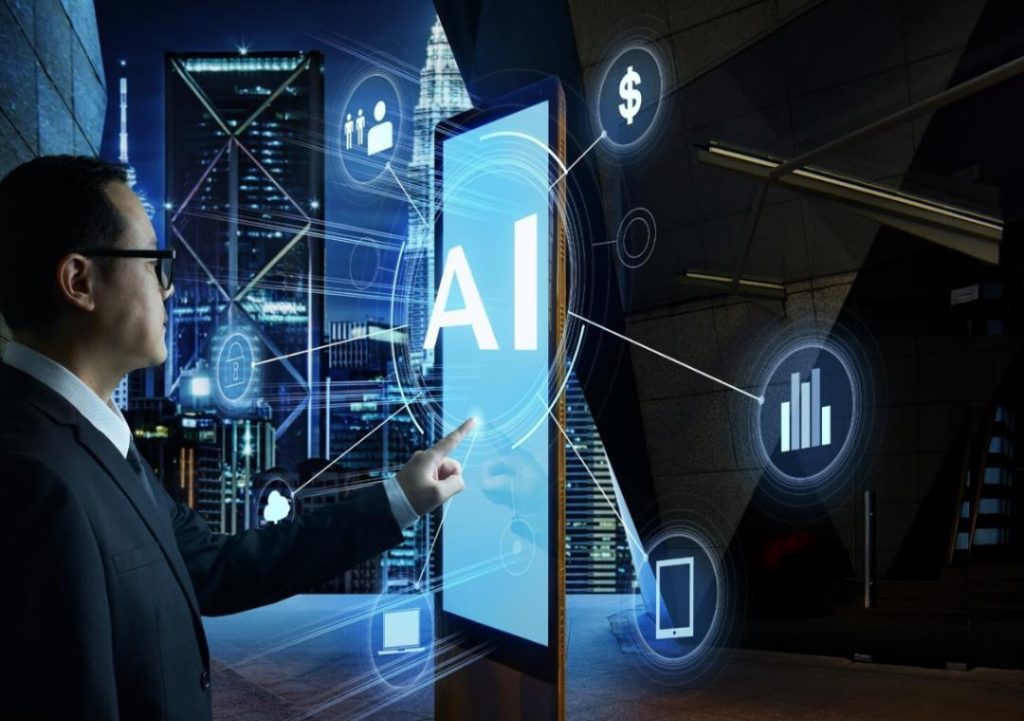
AI & ML now power over 77% of business processes
The world of business has undergone a significant transformation in recent years, and Artificial Intelligence (AI) and Machine Learning (ML) are at the forefront of this change. Gone are the days when AI and ML were seen as futuristic concepts, confined to the realm of science fiction. Today, they are operational essentials that have become an integral part of many businesses.
According to a recent report, over 77% of enterprises now use AI and ML to improve productivity, reduce costs, and personalize user experiences. This shift is no longer optional; it’s fundamental to staying competitive in a digital-first world.
So, what exactly is AI and ML, and how have they become so important in business? Let’s take a closer look.
What is AI and ML?
Artificial Intelligence refers to the development of computer systems that can perform tasks that would typically require human intelligence, such as visual perception, speech recognition, and decision-making. Machine Learning, on the other hand, is a subset of AI that involves training algorithms to learn from data and improve their performance over time.
In simple terms, AI is the ability of machines to perform tasks that would normally require human intelligence, while ML is the process of training machines to learn from data and improve their performance.
How is AI and ML important in business?
So, why are AI and ML so important in business? Here are just a few examples:
- Automating Customer Support: AI-powered chatbots have revolutionized the way businesses interact with their customers. By automating customer support, businesses can provide 24/7 support to their customers, reducing the need for human intervention and improving response times.
- Real-time Fraud Detection: AI-powered algorithms can analyze vast amounts of data in real-time to detect fraudulent activities, such as credit card transactions or online scams. This helps businesses reduce the risk of financial losses and improve customer trust.
- Predictive Maintenance: AI-powered predictive maintenance algorithms can analyze equipment data to predict when maintenance is required, reducing downtime and improving overall efficiency.
- Personalized User Experiences: AI-powered algorithms can analyze customer data to provide personalized product recommendations, improving customer satisfaction and driving sales.
- Supply Chain Optimization: AI-powered algorithms can analyze supply chain data to optimize routes, reduce costs, and improve delivery times.
The Benefits of AI and ML in Business
So, what are the benefits of AI and ML in business? Here are just a few:
- Improved Productivity: AI-powered automation can reduce the need for human intervention, freeing up employees to focus on higher-value tasks.
- Reduced Costs: AI-powered algorithms can reduce costs by optimizing processes, improving efficiency, and reducing waste.
- Improved Customer Experience: AI-powered algorithms can provide personalized user experiences, improving customer satisfaction and driving loyalty.
- Increased Efficiency: AI-powered algorithms can analyze vast amounts of data in real-time, providing businesses with valuable insights and improving decision-making.
- Competitive Advantage: Businesses that adopt AI and ML early can gain a competitive advantage over their rivals, improving their market position and driving growth.
The Future of AI and ML in Business
As AI and ML continue to evolve, we can expect to see even more innovative applications of these technologies in business. Here are just a few examples:
- AI-powered Sales Forecasting: AI-powered algorithms will analyze sales data to provide accurate forecasts, helping businesses optimize their inventory and improve supply chain management.
- AI-powered Customer Segmentation: AI-powered algorithms will analyze customer data to provide detailed insights into customer behavior and preferences, helping businesses personalize their marketing efforts and improve customer engagement.
- AI-powered Cybersecurity: AI-powered algorithms will analyze network data to detect and prevent cyber attacks, improving security and reducing the risk of data breaches.
Conclusion
In conclusion, AI and ML are no longer futuristic concepts; they are operational essentials that have become an integral part of many businesses. With over 77% of enterprises now using AI and ML to improve productivity, reduce costs, and personalize user experiences, it’s clear that this trend is here to stay.
Whether you’re looking to automate customer support, detect fraudulent activities, or improve supply chain optimization, AI and ML have the potential to transform your business. So, what are you waiting for? Get started with AI and ML today and discover the benefits for yourself.
Source:
https://www.growthjockey.com/blogs/what-is-ai-and-ml-how-is-it-important






